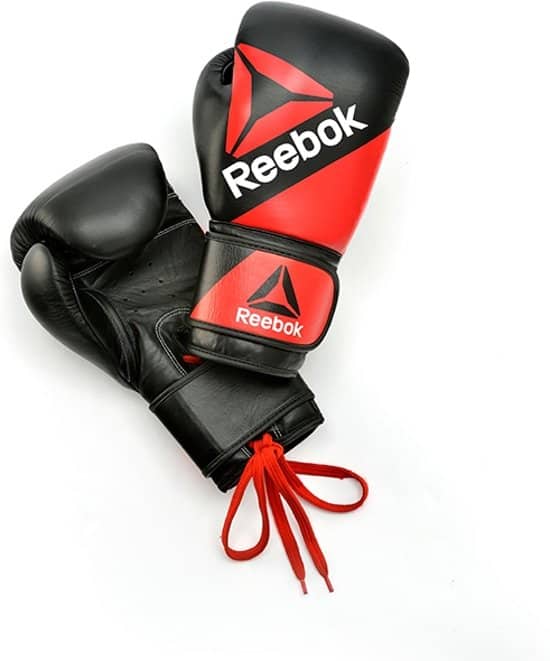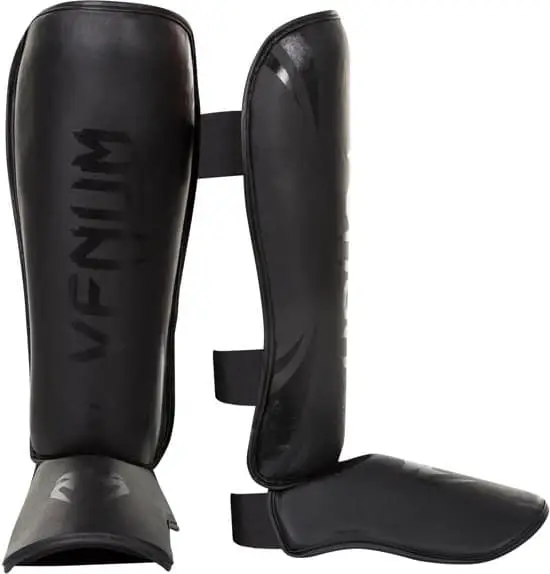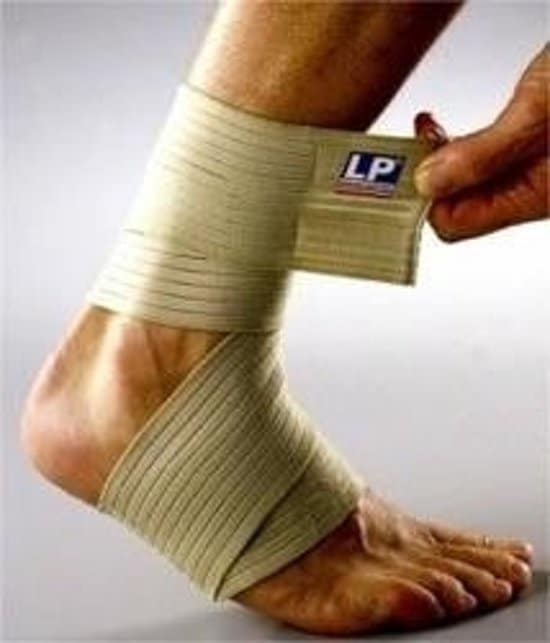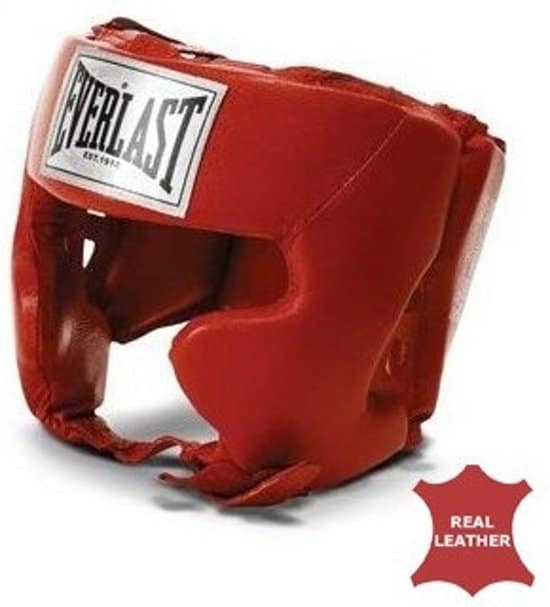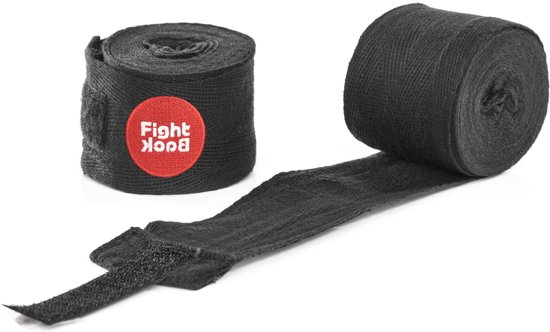I enjoy writing these articles for my readers, you guys. I don't accept payment for writing reviews, my opinion on products is my own, but if you find my recommendations helpful and you end up buying something through one of the links I may be able to receive a commission on that. More information
Kickboxing is a great sport for getting some good cardio and it's also a great sport for improving your hand-eye coordination.
It's also a great martial art if you want to learn how to protect yourself.
I've been kickboxing for a few years now and it has vastly improved my hand-eye coordination and balance along with improved lower body strength.
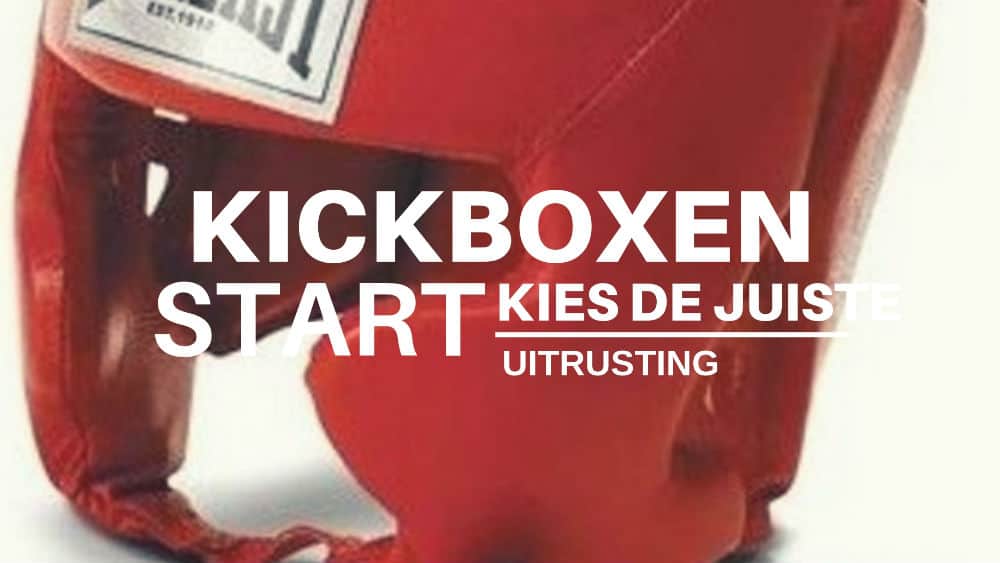
If you want to get started in the martial art / sport, here are some equipment you need to get started in kickboxing.
In this article I am not talking about cardio kickboxing; cardio kickboxing is the type of kickboxing commonly taught at fitness centers and used strictly for cardio (like this video).
In this article, I'm talking about kickboxing as a sport/martial art, one that requires drills, technique, and live sparring (like this video).
What we discuss in this comprehensive post:
- 1 What equipment do you need to start Kickboxing?
- 2 Referees at kickboxing
- 2.1 Starting the Bolt
- 2.2 Full contact rules bolt
- 2.3 In a MUAY THAI RULES Bout
- 2.4 LEG SWEEPS, CUT KICKS, SLIPS OR FALLS
- 2.5 STANDING 8 COUNTS
- 2.6 KNOCKDOWNS & KNOCKOUTS
- 2.7 CORNERMAN RULES
- 2.8 PROTECT FIGHTERS FROM OUTDOOR BARREL
- 2.9 FOULING-STOPS THE FIGHT
- 2.10 NOT SETUP
- 2.11 Procedure if a fighter falls out of the ring
- 2.12 OFFICIAL SIGNAL FROM THE REFEREE FOR END OF THE EVENT
- 2.13 STOPPING A BOLT
- 2.14 Scorecards
What equipment do you need to start Kickboxing?
Boxing gloves
Boxing gloves are essential in kickboxing. No bag gloves, get real boxing gloves.
14oz or 16oz gloves should be fine for bagging and sparring. Reebok has great boxing gloves; my first boxing gloves were Reebok gloves like these.
They will definitely last a long time.
However, make sure to spray Lysol or put baby powder in it after each use and let it dry – or it will start to smell after a month or so.
mouthguard
Mouthguards are an absolute necessity when you start sparring.
Even if you just want to practice technique and spar, it's a good idea to have. The mouthguard reduces the impact of any punch or blow to the chin or cheek.
Before using the mouthguard, boil it for 30 seconds before putting it in your mouth so that it fits perfectly in your mouth.
For mouth guards, I recommend you this one from Venum. It ensures that you do not lose your mouthguard and that it lasts a long time at the same time.
Clean with soap or toothpaste after each use.
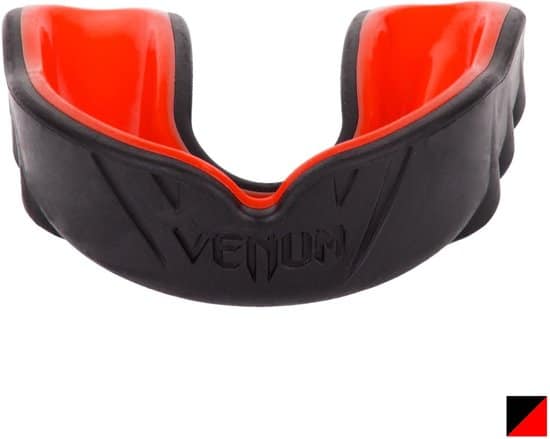
Read here about Attune's the best bits for sports
Shin guards
Shin guards are just as necessary as boxing gloves when it comes to kickboxing.
If you're kicking the muay thai tactic, you don't want shin guards because you want the chance to harden your shins.
However, if you are going to spar, you absolutely must have shin guards.
The shin contact can potentially tear your skin if you're not careful. The shin guards protect you against accidents.
For shin guards, you want one that absorbs a lot of the impact on your shins, but you also don't want it to be too bulky or heavy that it constricts your kicks.
That is why I opt for the more compact shin guards.
These shin guards from Venum do an excellent job of protecting your shin and feet and are quite compact and a good entry-level model.
Looking for something more? Read also our article on the best kickboxing shin guards
Only support wraps
Kickboxing requires a lot of movement, especially lateral movements. This makes your ankles prone to injury from landing incorrectly.
I sustained a grade 3 ankle sprain in my right ankle from kickboxing because I wasn't wearing any support wraps during a sparring session.
These are extremely important and you should always wear them even if you are just a shadow kickboxer. This one from LP support are the best I've come across.
If you have really weak ankles and you think the ankle wraps aren't providing you enough support, you can also wrap your ankles with an athletic wrap underneath. That's what I do.
headgear
If you plan on sparring, make sure you have good equipment.
Headgear absorbs the impact of any punches or kicks that go to the face. There are many types of headwear and some are cheaper than others.
But head protection isn't something you want to save on price. The cheaper ones are usually less good at absorbing hard knocks and kicks than the more expensive ones.
So if you plan on sparring at 100% speed or with people who have a lot of power, don't get the cheaper one.
For headwear that offers a lot of protection, I recommend this Everlast Pro headgear with head face on.
It has quite a bit of padding that can absorb a lot of blows from powerful fighting machines.
It's also great for not blocking your view, which is vital in any sparring match.
And don't forget to clean your headgear often so it doesn't start to smell.
hand wraps
Hand wraps are important to protect your wrists from injury.
It is a good idea to use them at all times. They can be a bit tedious to put on.
If that's a problem with you, then I recommend these Fightback Boxing Hand Wraps to buy; they're like little gloves that slip instantly, so there's no real "packaging" involved.
Hand wraps are also something that you have to wash quite often or else it will start to smell.
Referees at kickboxing
Chief Duty and Responsibility of the IKF referee is to ensure the safety of the fighters.
Sometimes 2 umpires are needed depending on whether a pro event and how many matches.
The ring umpire is responsible for the overall supervision of the match.
He enforces the IKF rules and regulations as stated in the regulations.
He promotes the safety of the fighters in the ring and ensures a fair fight between the fighters.
The umpire must ask each fighter before each attack who his chief trainer/trainer is on the ringside.
The referee will hold the trainer responsible for the behavior of his assistants and during the fight, ensuring that he follows the official IKF Cornerman rules.
The Referee MUST ensure that each fighter understands their language so that there is no confusion about “Ring Commands” during the fight.
Three verbal commands must be recognized:
- “STOP” when asking the fighters to stop fighting.
- “BREAK” when you order the fighters to separate.
- “FIGHT” when asking the fighters to continue the match.
When instructed to “BREAK”, both must go back at least 3 steps before the referee continues the fight.
The Referee shall call both fighters to the center of the ring before each fight for final instructions, each fighter shall be accompanied by his Chief Second.
This must not be SPEECH. This should be a basic reminder to EX: "Gentlemen, obey my orders at all times and let's have a fair fight."
Starting the Bolt
Immediately before the fight begins, the fighters will bow to the referee, followed by the fighters bowing to each other.
Once done, the referee will instruct the fighters to “FIGHT POSITIONS” and signal the timekeeper to start the fight.
The timekeeper will ring the bell and the match will begin.
Full contact rules bolt
In a FULL RULES OF CONTACT, the Referee is responsible for ensuring that each fighter achieves the requested number of kicks per round.
If not, the referee must warn such fighter and ultimately have the authority to deduct a point if he fails to meet the required minimum kick count.
In a MUAY THAI RULES Bout
The referee warns a fighter who is constantly running from his opponent not to do so. If he continues to do this, he will be deducted 1 point for INTENTIONAL EVASION OF CONTACT.
LEG SWEEPS, CUT KICKS, SLIPS OR FALLS
- A-foot on foot, in and out of the opponent's front foot are allowed.
- No swinging motion.
- No movements above the footpath.
- No sweeping of the supporting leg unless in a Muay Thai attack.
- Any moves/kicks to the legs that cause a fighter to fall from the ground from the loss, slip, WILL NOT count as a knockdown.
- If the FALL ITSELF causes injuries, the referee starts counting on the downed fighter. If the fighter is not on the count of 10, the fight is over and the fighter loses.
- If the kick to the legs harass the fighter and he/she is forced to fall to 1 knee or to the ring bottom because of the INJURY to their legs, the referee starts counting.
- Again, if the fighter fails to stand after the count of 10 “OR” pain spikes up once, the referee will stop the fight and that fighter will be declared the loser by KO.
STANDING 8 COUNTS
During a flurry, the referee will not intervene to stop the action when the fighters are still “strong”.
If a fighter appears helpless and receives several blows to the head or body, but remains standing, does not move and is unable to defend himself, the referee will intervene and give the fighter a standing 8 count.
At this point, the umpire must look over the fighter and if the umpire deems it necessary, he/she can stop the fight at this point.
If a fighter is not standing "strong" and his/her eyes are not clear, the umpire may choose to stop a fight prior to a standing 8 count if the fighter is beaten and unable to see his/her hands up to chin level and still protect yourself.
At ANY time, the referee can ask the ringside GP to come to the ring and make a real medical decision as to whether a fighter should continue or not.
KNOCKDOWNS & KNOCKOUTS
If a fighter is knocked down 3 times in 1 round, the fight is over.
Sweeps also do not count as a KNOCKDOWN and a leg kick for a single support leg.
If a fighter is knocked to the ring bottom or falls to the ground, he must stand up under his own power.
Fighters can only be saved by the bell on the last round.
If a fighter is knocked down, the referee must order the other fighter to retreat to the farthest neutral corner – WHITE.
clinching
The umpire must wait for a count of 3 before a clinch is interrupted on all Full Contact & International Rule Bouts. Let the fighters fight.
In Muay Thai bouts, the clinch lasts no more than 5 seconds and sometimes no more than 3 seconds. This is determined in matchmaking.
The referee will contact the promoter and/or IKF representative of the agreed clinch time and then verify this with both fighters and their trainers before the start of the match.
CORNERMAN RULES
The umpire ONLY gives a maximum of -2 warnings to a cornerman or a second who leans on the ring bottom, touches the ring ropes, claps or hits the ring, calls or coach his/her fighter or calls to an official during the fighting round.
If after -2 warnings, said cornerman or seconds continue to do so, both amateurs and pros, the fighter who does not follow the cornerman's rules and regulations may lose a point or his/her corner/trainer may be fined , suspended or disqualified from the match by the IKF ringside representative.
If disqualified, the fighter loses by TKO.
The only person other than the Referee and the fighters allowed to touch the ring cloth in the middle of a round is the timekeeper who claps the ring cloth “3” times when 10 seconds remain in each round.
PROTECT FIGHTERS FROM OUTDOOR BARREL
If a spectator throws an object from the crowd into the ring, TIME will be called by the umpire and event security will escort the spectator out of the arena area.
The spectator will be subject to arrest and fines.
If a second or corner throws something into the ring, it will be interpreted as a request to stop the fight and this corner will lose by technical knockout.
FOULING-STOPS THE FIGHT
The umpire shall manage the following for fouls:
1st time warning to the hunter.
2nd time, 1 point deduction.
3rd time, disqualification.
(*) If the violation is serious, the referee & or the IKF representative can stop the match at ANY time.
NOT SETUP
If the Referee determines that the fighter needs time to recover, he may stop the fight and time and give the injured contestant time to recover.
At the end of that time, the umpire and ringside physician will determine if the fighter can continue. If so, the round starts at the stop time.
If not, the Referee collects all 3 scorecards for judges and the winner is determined by who was on the 3 scorecards at the time of the foul.
If the fighters were equal, a TECHNICAL TRACK is awarded. If the error occurs on the first round, NO MATCH will be awarded to each fighter.
If the referee determines that the contestant needs time to recover, he can stop the fight and time and give the injured fighter time to recover.
At the end of that time, the umpire and ringside physician will determine if the fighter can continue. If so, the round starts at the stop time.
If not, the Referee collects all 3 scorecards for judges and the winner is determined by who was on the 3 scorecards at the time of the foul.
Before the start of the fight, the referee must determine whether he/she:
- Offer a warning to the Fouling Fighter.
- Take a 1 point deduction from the fighter who commits the offense.
- Disqualify the Fouling Fighter.
- If the polluted fighter can't go any further.
- If the fouled fighter cannot advance beyond the CAUTION FOUL, regardless of the scorecards, the fouled fighter automatically wins by disqualification.
- Should it be necessary to stop the match or to penalize a fighter, the referee will immediately inform the IKF Event representative after making the announcement.
When a fighter is knocked down or falls intentionally without standing, the umpire shall instruct the other fighter to retreat to the farthest neutral corner of the downed fighter's ring.
The downed fighter count by the ringside timer must begin as soon as the fallen fighter touches the ring bottom.
If the umpire was instructing the other fighter to retreat to the farthest neutral corner, on his return to the downed fighter the umpire shall pick up the actual ringside time base count, which shall clearly and visible by counting with his fingers past his head so that the umpire can clearly choose the count.
From that point, the Referee will continue the count over the downed fighter, showing the Referee with his arm the count with 1 hand up to 5 and remaining on the same hand up to 5 fingers to signal a count of 10.
At the end of each downward move is the count of each number.
If the fighter stands during the count, the umpire continues to count. If the standing fighter leaves the neutral corner, the referee stops the count and instructs the standing fighter again to the neutral corner and starts the count again from the moment of interruption when the standing fighter complies.
If the fighter on the canvas is not before the count of 10, the standing fighter will be determined the winner by knockout.
If the umpire feels that the fighter can continue, the umpire wipes the end of the fighter's gloves on the umpire's shirt before continuing to fight.
Procedure if a fighter falls out of the ring
If a fighter falls through the ring ropes and out of the ring, the referee must make his opponent stand at an opposite neutral corner and if the boxer stays off the ropes, the referee starts counting to 10.
The fighter who has fallen off the ropes has a maximum of 30 seconds to return to the ring.
If the fighter returns to the ring before the count ends, he/she will not be penalized for a “Standing 8 count” UNLESS it was a strike from his/her opponent that sent him/her through the ropes and out of the ring.
If anyone prevents the fallen fighter from returning to the ring, the umpire will warn that person or stop the fight if he continues with his action.
If this person is associated with his/her opponent, the fallen fighter wins by disqualification.
When both boxers fall out of the ring, the referee starts counting.
If a boxer tries to prevent his/her opponent from returning to the ring before the count ends, he/she will be cautioned or disqualified.
If both boxers fall out of the ring, the referee starts counting and the fighter who returns to the ring before the count ends is deemed the winner.
If both return within the 30 seconds allowed, the fight can continue.
If neither boxer can, the result will be considered a draw.
OFFICIAL SIGNAL FROM THE REFEREE FOR END OF THE EVENT
If the referee determines the fight is over by knockdown, knockout, TKO, foul, etc.
The umpire indicates this by crossing both hands ABOVE his/her head and/or over his face as he/she steps between the fighters.
STOPPING A BOLT
The referee, the first line doctor or the IKF ringside representative has the power to stop a match.
Scorecards
At the end of each fight, the Referee collects the scorecards from each of the three judges, inspects them to ensure they are all correct and signed by each judge and presents them to the IKF Event Representative or IKF Scorekeeper, whichever is appropriate. IKF Event representative has been appointed by the jury to count the scores.
Once a decision has been made, the referee will move both fighters to the center ring. After announcing the winner, the referee will raise that fighting hand.
For TITLE BOUTS
At the end of each ROUND, the Referee collects the scorecards from each of the three judges, inspects them to ensure they are all correct and signed by each judge and presents them to the IKF Event Representative or IKF Scorekeeper, as determined by the jury is appointed IKF Event representative to count the scores.
All IKF Event Officials are employed by the Promoter and are ONLY approved by the IKF Event Representative.
Every official must know all the rules and regulations for an IKF kickboxing event. To find well-qualified officers, contact the local athletic commission or work directly with the IKF to select the best-qualified officers for each position.
The IKF reserves all rights to refuse or appoint any necessary officers if the promoter's selections do not meet the IKF's required qualifications.
Any official found under the influence of ANY drug or alcohol powder immediately prior to or during the event, will be fined by the IKF $500,00 and placed on a suspension determined by the IKF.
Every official at an IKF event authorizes the IKF for drug testing before or after a fight, amateur or pro and especially if the match is a title match.
If an officer is found under the influence of ANY drugs, the officer will be fined by the IKF $500,00 and placed on a suspension determined by the IKF.
ALL officials must be pre-approved and licensed by the IKF “UNLESS” other IKF approved officials in the Promoters area are available for the event.
Also read: the best reviewed boxing gloves at a glance

